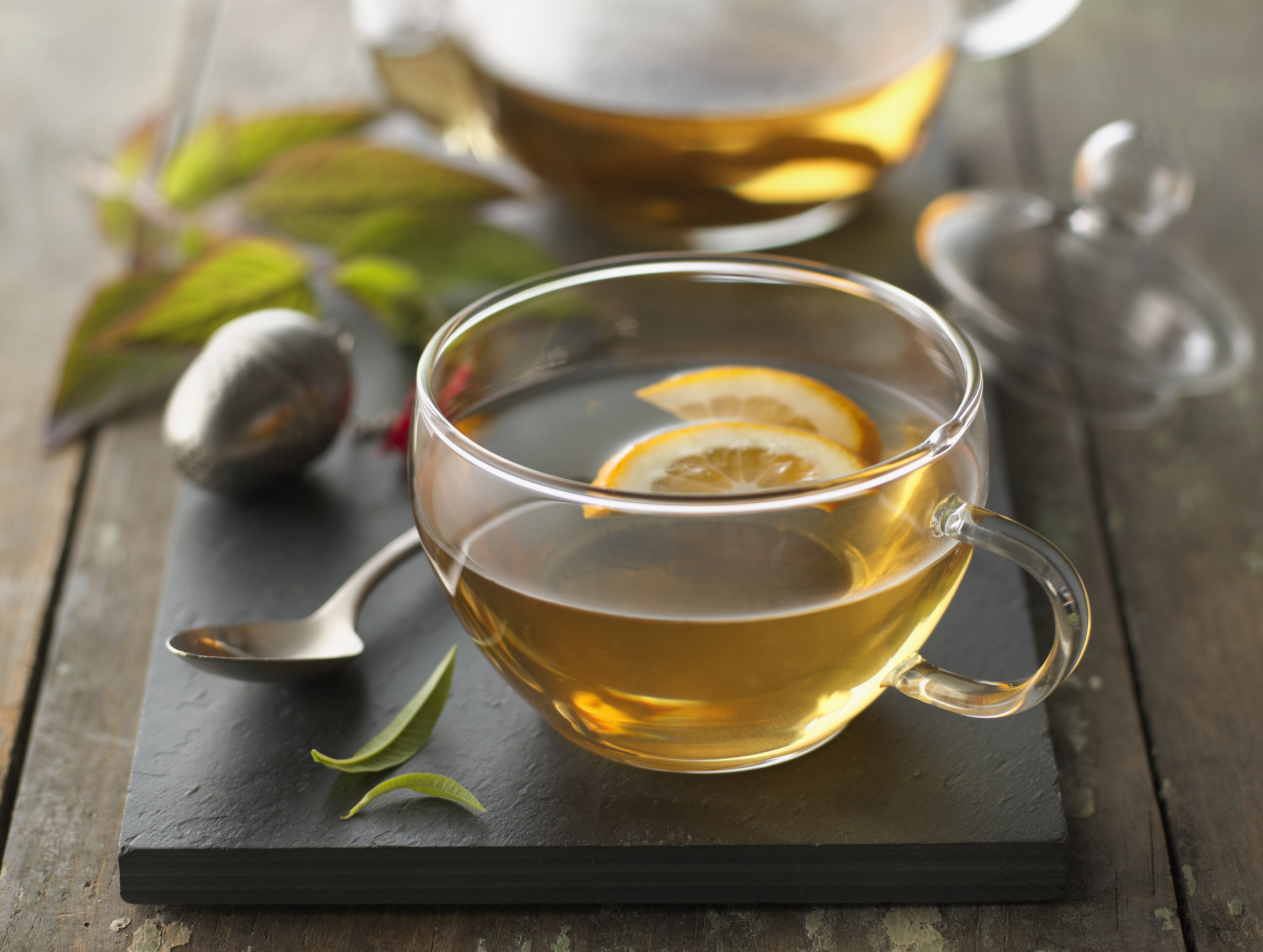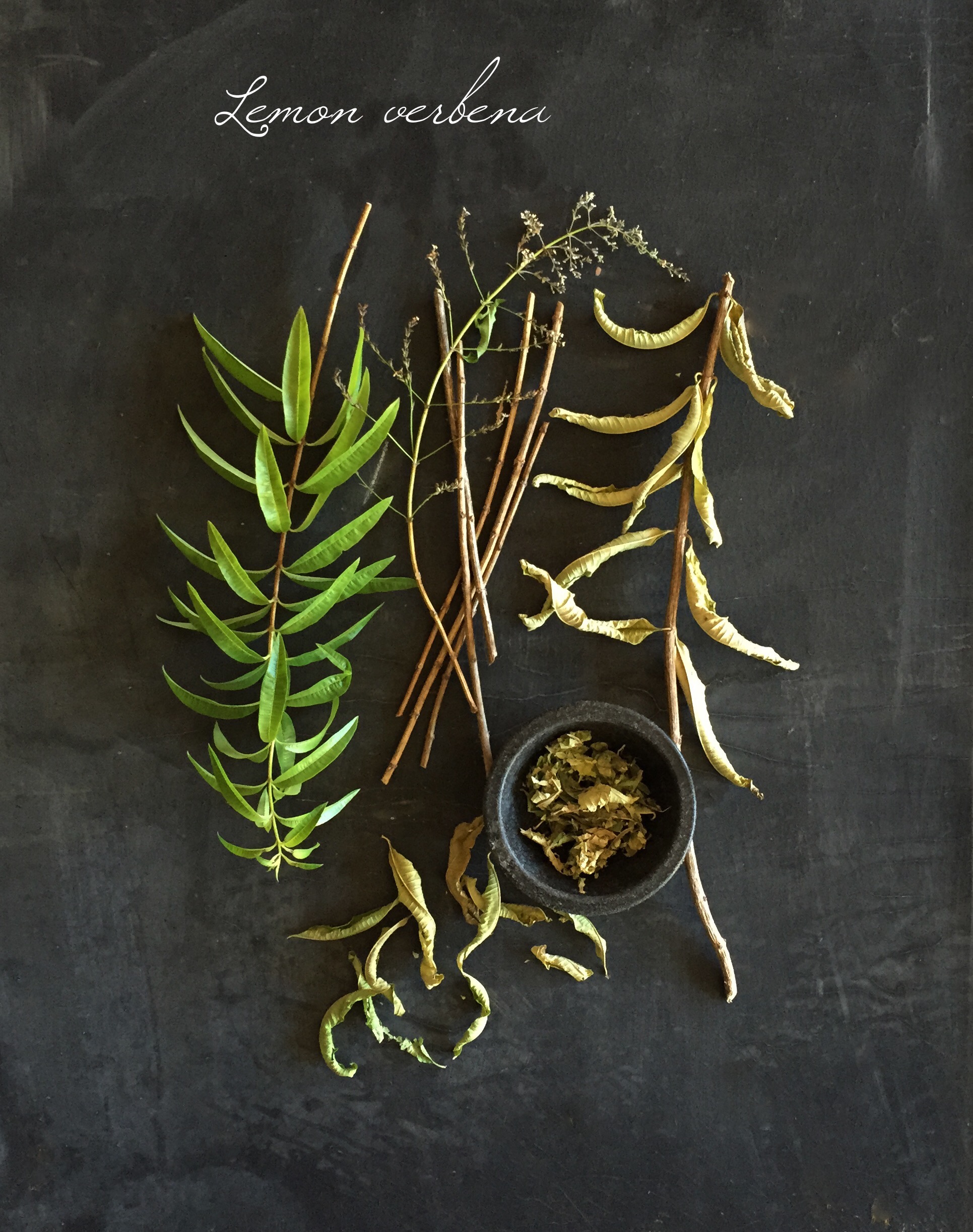In this time of divided allegiances, I want to focus on good things. Like mourning the end of my garden while simultaneously celebrating the tiny victories of preserving bits and pieces of it. The tangle of woody herbs on my front step are a lesson in hearty constitutions: resinous rosemary, velvety sage, and aromatic verbena. No wonder the flavors of these persistent herbs love the foods of late autumn and winter. Stuff that grows together go together. As I gently cosset these last hold outs for our Thanksgiving feast, I'm reveling in the last of the spiky, shiny green leaves of my lemony verbena. Think about it. Anything lemon is assertively non-partisan, happily pairing with savory or sweet.
© Lisa Golden Schroeder. Fresh verbena leaves dry beautifully or provide a deeply lemon flavor to scent fish and vegetable dishes or desserts.
The aroma of pungent lemon is the bottled lemon oil we used to polish my mother’s antique walnut Victorian furniture, an indelible sensory memory. We had lemon trees in our spartan Arizona backyard too, calling out to be covered with a shroud of plastic by me and my siblings when the desert temperatures fell below freezing. As I got older, I raided a boyfriend’s mom’s ancient lemon tree on late winter days to harvest neglected lemons that weighted down the heavy branches or fell to a bruised, overripe mess all over the hard desert floor below. I squeezed by hand quart upon quart of tangy lemon juice to stash in the freezer. There’s nothing much better than icy cold lightly sweetened lemonade made from those nearly dried heat-ripened citrus, infused with finely chopped hot chiles. Lemon is imprinted on my olefactory storehouse of ah-hah fragrances. A perfumy symbol of smells that take me back to nice places.
Our lemons and hedges of wild rosemary were loving partners in the desert; vibrant yellow zest against the pale indigo violet of rosemary blossoms, rays of brilliant sun skimming off the dusty greenish-grey rosemary needles. I remember running my fingers along the stems to raise their warm scent, then plucking the leaves to crush with liquid lemon and flowing local honey, a harvest from the bees that drank deeply from the rosemary flowers. Agave syrup would have been an agreeable ally, but something of the future. Then, agave was a plant in our wild front yard, the name of our street, and a desert wellspring for fermented juices like mezcal and tequila.
I eventually graduated to sipping lemon zinger tea in college—crimson with crushed dried hibiscus petals. At the time I didn’t understand the relationship of a flower from south of the border and lemon. But both are worshippers of the sun Gods. I just knew the tart flavor perked up my mind and cleared out the cobwebs of academia.
© Dennis Becker; gardener Lisa Golden Schroeder
So finally to the hero of this story: lemon verbena. One of the first herbs I grew in my fledgling newly-wed garden. It climbed the sunny south wall of our first house, along with towering sprays of tansy (a mostly vain attempt to keep the ants from marching into our kitchen.) The coarse-leaved verbena gave up a tangy scent; long narrow leaves on strong woody stems—more bush-like than herbal plant-like. A sophisticated fragrance from somewhere in my literary memory, dried to make tisanes. Herbal infusions that delicate ladies in Victorian novels or in French sitting rooms seemed to favor. Evidently caffeine would be too invigorating.
So as my first gardening year came to a close I became serious about preserving anything I could, including any and all green leaves. Binding up long sprigs with rubber bands and hanging them in the basement from wire hangars to slowly dry; infusing simple syrups with luscious combos of verbena, lavender, and rosemary; and simmering coarsely chopped leaves and stems in heavy cream to whip, make ice cream, or scent creamy puddings. Plus lightly crushing up dried leaves for herb salts and not to be forgotten, verbena leaves for powerfully rejuvenating cups of tea. The volatile essential oils of verveine citronelle make it a prime candidate as a flavoring agent. Click here for some versatile ideas.
© Lisa Golden Schroeder. Use verbena blossoms to scent cream or a simple syrup to use in unique cocktails.



